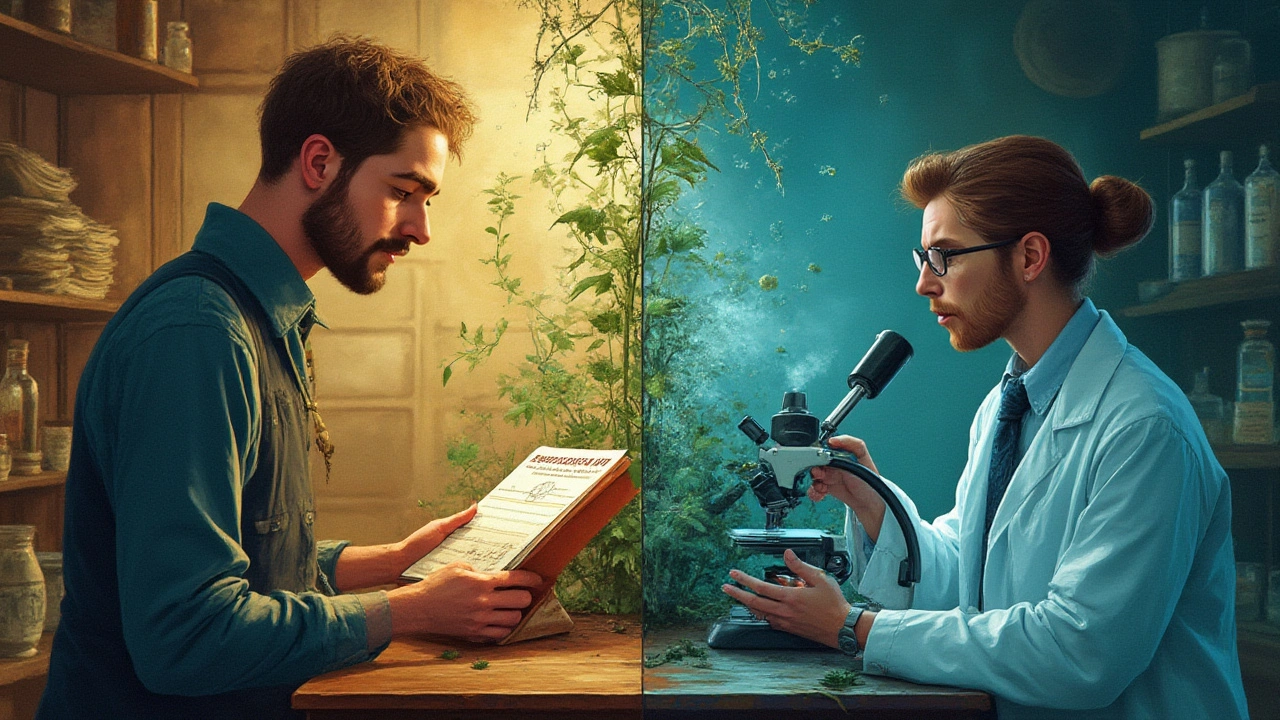Every so often, a wild plant finds its way onto the shelves of health stores, wrapped in bold claims about boosting energy and sharpening your mind. Water hemlock, a name you might recognize if you’ve ever browsed herbal wellness forums, sits in that strange intersection of curiosity and caution. Known as one of the most toxic plants out there, it’s surprising how often you’ll see it pop up in discussions about “natural” supplements. The idea alone is like saying you’ll get a little energy kick out of a rattlesnake—provocative but off the mark. Ready for the real scoop on water hemlock supplements?
The Dark Reputation: Ancient Poison Meets Modern Curiosity
If the word “water hemlock” seems a bit sinister, there’s a solid reason for it. Water hemlock (Cicuta species) grows in swamps, streams, and wet meadows across North America, waving its lacy leaves and umbrella-shaped clusters of white flowers—right up until someone or something eats it by mistake. Back in the day, Greek history even tells us that hemlock (relatives, not exactly the same plant) was used as an agent of execution. Socrates drank a close cousin of water hemlock, Conium maculatum, as his chosen form of capital punishment. Water hemlock, however, isn’t less toxic—in fact, it holds the trophy for North America’s most poisonous plant.
Let’s get specific. Water hemlock is notorious because of a compound called cicutoxin. This stuff messes with your nerve cells, triggering off-the-wall muscle spasms, seizures, dizziness, confusion, and even death. Just a tiny amount of root—the part that looks a little like a parsnip—is enough to be potentially lethal. There’s no approved safe dosage, no whisper of it being used traditionally as a tea or tonic by herbalists who actually lived to pass down recipes. When you look up historical “uses,” you don’t find energy potions. You find medical case reports: farmers, foragers, and even curious kids ending up in the emergency room within an hour of nibbling the wrong root.
And yet, the idea of putting water hemlock into a supplement persists. Why? Sometimes, it’s just the confusion of common names. Not everyone realizes water hemlock isn’t related to the carrot-like “wild parsnip” or even herbal hemlock found in old European cough syrups. People get mixed up by folklore—assuming anything called “hemlock” must have some value if the ancients wrote about it. But modern science is clear: water hemlock is all risk, zero benefit. If you’re hunting new ways to get a natural energy boost, this isn’t just a dead end. It’s the dangerous side of the natural supplement craze.
Supplements Hype and Label Confusion: What Are You Really Getting?
If you’ve spent time in a vitamin aisle, you know the wild-west vibe that comes with supplement shopping. Labels flash phrases like “100% pure,” “plant-powered,” or “nature’s vitality” more often than actual ingredient lists. But what about water hemlock? There’s a twist: sometimes what’s called “hemlock” isn’t even water hemlock. In the supplement world, labels occasionally use the word “hemlock” for completely unrelated plants. Mix-ups between water hemlock, spotted hemlock (Conium maculatum), and even Tsuga (a fir tree, totally harmless) are common enough to make botanists sweat. That worry is not paranoia—sometimes unscrupulous sellers count on the confusion to look more exotic.
This goes further than just names. In the rare and alarming instances where water hemlock has ended up in products, it’s usually because of wildcrafted or misidentified ingredients. For example, there have been reports out of California and the Midwest where so-called “natural root supplements” actually contained small but dangerous quantities of cicutoxin. A study published in "The Journal of Emergency Medicine" in 2019 found that accidental plant poisoning is still a real issue, especially in areas where foraging and home-made herbal remedies are popular.
So, can you trust what the label tells you? Not always. The U.S. Food and Drug Administration (FDA) doesn’t require dietary supplements to undergo the same rigorous testing as prescription drugs. That means the market is open to human error—or worse, intentional mislabeling. If you’re shopping for plant-based supplements promising incredible energy or mood lifts, study every ingredient list and only buy from reputable sources with transparent third-party testing results. Water hemlock should never, ever show up in a legitimate product.
Spotting safe supplements takes a little work. Besides reading labels, check if the company lists botanical Latin names, not just common names. Authentic supplement brands typically offer a certificate of analysis, batch testing, and independent verifications. It’s a bit like double-checking whether your “organic honey” actually comes from bees, not syrup.
| Plant Name | Common Supplement Uses | Poisonous | Main Toxic Compound |
|---|---|---|---|
| Water Hemlock (Cicuta spp.) | None (should never be used) | Yes | Cicutoxin |
| Poison Hemlock (Conium maculatum) | Traditional poison | Yes | Coniine |
| Eastern Hemlock (Tsuga canadensis) | Herbal teas (safe) | No | None |
At my house, Megara is the official ingredient hawk. If she spots anything sketchy, it’s not making it past the pantry door. That level of vigilance matters—a supplement is something you ingest, not just something you put on a shelf to admire. It’s not worth rolling the dice when the risks are this high.

Why the “Natural” Label Doesn’t Mean Safe—And What Actually Works
People fall for the idea that “natural” equals “harmless” all the time. Dandelion tea is gentle. Peppermint oil is soothing. But plenty of natural things—think of foxglove, death cap mushrooms, or water hemlock—remind us that nature is pretty hardcore about not being tamed. Looking for energy, better mood, or sharper focus? That’s fine! But the shortcut won’t come from a plant that historically headlines toxicology textbooks. Real, sustainable boosts don’t carry the risk of uncontrollable seizures.
Let’s be direct: There’s zero reliable evidence that water hemlock, when processed into any supplement, boosts energy, mental clarity, or anything else we’d want. Zero, zilch, nada. Science journals cover why we pop vitamins and drink green juices, but when it comes to water hemlock, the conversation is always about emergency medicine, not optimal living. The claims usually come from misunderstandings, urban legends, or straight-up fraud.
So if you want a shot of energy from your morning routine, focus on the classics that come with decades of real research. Caffeine, for example, is proven to increase alertness—just stick to safe limits. Green tea, ginseng, and B-vitamin complexes get studied regularly for their benefits (and their potential downsides, like raised heart rate). Even beetroot powders can improve endurance in athletes, supported by a stack of studies.
If you’re still interested in herbal alternatives, here's a list of safe, science-backed options for managing fatigue:
- Rhodiola rosea: This northern plant helps your body handle stress and may support stamina.
- Ashwagandha: Widely used in Ayurveda for helping regulate stress hormones.
- Panax ginseng: Time-tested, especially for focus and natural endurance.
- Maca root: Used in South America to promote energy and mood balance.
All of these are studied, and reported side effects are mild when used as directed (though it’s still smart to talk to your doctor, especially if you have health conditions or take meds).
Natural supplements that work are never a shortcut, just a nudge. Energy starts with basics: sleep quality, nutrition, movement, staying hydrated, and realistic goals. No root or leaf can replace the essentials. My son Tobin is pure chaos on two legs most days, and believe me, no supplement can top the kind of energy that comes from a good night’s sleep and a filling breakfast. That's where most of us need to start—before getting sidetracked by the next “miracle plant.”
What If You’ve Been Exposed—or Still Want to Experiment?
If by some wild twist, you or someone you know suspects water hemlock exposure—don’t wait. Skip the home remedies, skip Googling herbal “antidotes.” Call poison control, get to the ER. The margin for error is razor thin, and minutes matter. Cicutoxin can cause convulsions in as little as 15 minutes, and it’s not something that passes with time—a few brave souls have survived, but only because doctors got to them fast and hit them with aggressive care.
For people still tempted by the experimental route: think hard about the risks. You wouldn’t take a swig from under the sink just because an internet forum hints there might be benefits, right? There are plenty of real health hacks out there that are both effective and safe. Don’t risk your life chasing a myth—or trusting a misleading label.
If you’re curious about boosting your natural energy, look for well-reviewed, well-studied supplements. Read up; check expert sources and listen to your doctor before you swallow something with a promising name but a dangerous reputation. You can always start with small lifestyle tweaks—a brisk walk, better hydration, a balanced breakfast. No one ingredient is a shortcut to good health, especially not one as lethal as water hemlock.
Stick to truth over trend. Your body will thank you—and so will the people who count on you to stick around, in good health, for a long, long time.
